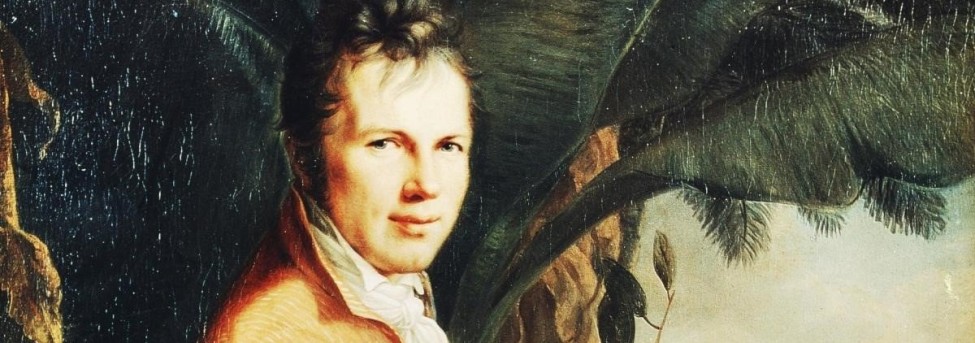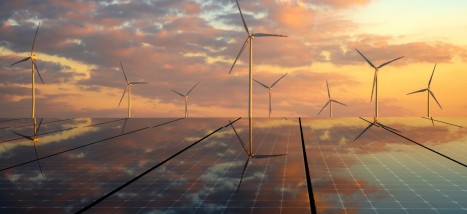-
29 September 2021

Alexander von Humboldt, visionary and hero
"I almost love this man," Charles Darwin once wrote of Alexander von Humbolt. The renowned creator of the theory of evolution made no secret of his admiration for Humboldt. Without Humboldt there probably would have been no theory of evolution, for Darwin found the blueprint for this in his writings.
Unlike Darwin, however, Humboldt has no great discovery to his name. This Prussian scientist, naturalist and explorer, a combination of Indiana Jones and Stephen Hawking, came up with a worldview in the early 19th century in which nature as a web of life is all-encompassing and in which everything is connected. Humboldt also noted the destructive influence of man for the first time here. In the 20th century, he was somewhat forgotten. Who was this exceptional man and why is his worldview so important now?
Alexander von Humboldt was born on September 14, 1769 in Berlin as the descendant of a noble family. He developed a great interest in nature in his immediate environment at a very young age. Perhaps he was already captivated here by what the Germans call 'Fernweh', a longing for faraway places. His life-changing expedition took him to a large area around Central America, the Caribbean and northern South America. From the Spanish port of La Coruna, Humboldt departed for the West on June 5, 1799, eventually arriving in present-day Venezuela.
During his journey full of hardships, he would discover and contemplate the conclusion that everything is connected: geography, anthropology, biology, and politics. Colonialism, slavery, climate and economy balancing on the fragile foundations of nature. With a distinctive cosmic gaze, he would view and describe everything as a large whole. At Lake Valencia he saw the devastating hand of man in nature. Deforestation by European planters left the Earth's surface relentlessly at the mercy of the scorching sun. Extreme evaporation led to heavy rains, which then washed away the soil. The land was misused for quick profit, but this inevitably led to disaster for the population. Humans could cause climate change, according to Humboldt. A foresight.
Humboldt saw the chilling splendor of existence. He was fascinated by the development of the diversity due to climatic and environmental factors. In everything he saw nature first, as he had done from childhood in a human-dominated environment. Every observation was part of something bigger, something with a shared beating heart.
Humboldt sailed up the great Orinoco River, only to be back on the Venezuelan coast after more than 2,200 kilometers, partly overland. An expedition of more than four months through then unknown, largely uninhabited area, covered in dense jungle. Humboldt climbed several volcanoes. He describes the earthquake that occurred during the second ascent very accurately. It all had to have something to do with each other. He also climbs the more than six thousand meters high peak in the Andes, Chimbarazo, known at the time as the highest mountain in the world. Almost at the top of that mountain he had his aha experience: surveying the landscape, he came to realize that nature is one large organism, a connected web of life. Nature is a living whole, not an idle mass. Human intervention in this area could not remain without consequences.
Humboldt depicted the Earth as a living planet with a large skin, breathing that fluctuates temperatures, can get sick and then show symptoms. He was a child of the Enlightenment, a restless homo universalis, a polymath with an extraordinary memory who pursued his dream of traveling and exploring. Perhaps ultimately much more of a connector than a discoverer. The ancestor of the nature movement and a visionary. He is a voice from the past with a message for the present. Humboldt was above all the first to realize that humans can influence the climate. Now that the consequences of that influence are shockingly clear, the question is whether we will act in time to reverse it and keep the earth in its current, breathtaking shape. Nature has become political, the climate has become economic. Globalism has replaced colonialism. Companies are now connecting countries with each other. Awareness of the problem is a first step. But more is needed. To tackle climate change, we need Humboldt's vision now more than ever. Humboldt was driven by a connection with and admiration for nature. Nature that can only really be understood through imagination, emotions and feeling. It now takes a generation to share this with him and act upon it. We can only really effectively protect nature if we genuinely love it. Humboldt's love for nature was intense and unconditional. Humboldt is the classic hero the modern world needs.
Sources:
L. Brouwers, Een held voor onze tijd, NRC, June 18, 2016.
R. van der Lint, Verloren held van de wetenschap, De Groene Amsterdammer, September 5, 2017.
E. Palmen, Alexander von Humboldt, environmentalist avant la lettre, Biografieportaal, July 2, 2016.
M. Werner, Het blijkt fantastisch om met von Humboldt mee te reizen, De Volkskrant, 28 May 2016.
A. Wulf, De uitvinder van de natuur. Het avontuurlijke leven van Alexander von Humboldt, Amsterdam, Atlas Contact 2016.
-
25 March 2025
 Green hydrogen can contribute effectively to emissions reductionBy: Evertjan van Roekel
Green hydrogen can contribute effectively to emissions reductionBy: Evertjan van RoekelGreen hydrogen often, but certainly not always, leads to CO2 gains. This is evident from research in Nature Energy by Kiane de Kleijne of Radboud University and Eindhoven University of Technology. 'If you calculate the entire life cycle of green hydrogen production and transport, the CO2 gain can be disappointing. But if green hydrogen is produced from very clean electricity and in the region, it can really contribute to emission reductions.'
[Read more...] -
18 February 2025
 Renewable energy investment creates great potentialBy: Evertjan van Roekel
Renewable energy investment creates great potentialBy: Evertjan van RoekelAn investment in renewable energy offers an excellent financial return and a way to put your money to work for people and the environment. Sustainable energy investments also play a crucial role in tackling the global climate problem.
[Read more...]